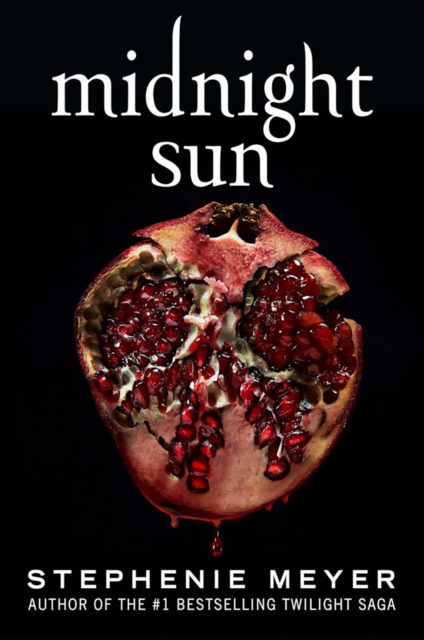Edward Cullen has been 17 for a while – and “Midnight Sun” reveals that even vampires aren’t immune to overindulging in teenage angst.
Stephenie Meyer had set aside the retelling of the first “Twilight” novel from Edward’s perspective in 2008 after the manuscript was leaked. But what has emerged since then is the “Twilight” Renaissance – a sudden resurgence in fans rehashing details ranging from the classic love triangle to Bella’s supposedly sexy khaki skirt. It’s no surprise that, in the midst of quarantine monotony, fans crashed the author’s website when the “Midnight Sun” publishing date was announced.
Released Tuesday, “Midnight Sun” has all the trappings of a classic “Twilight” novel – a meandering plot, dramatic internal monologues and repressed teenagers. One turns to “Twilight” knowing that, though it lacks clever writing and complex narratives, it certainly offers an entertaining read. And in this case, many fans are returning to the nostalgia the franchise holds, as well as a chance to find closure in a story many thought Meyer would never complete.
[Related: Book review: ‘The Hunger Games’ prequel pays tribute to saga, leaving main character static]
But where this new perspective could have been an opportunity for Meyer to modernize her work, she instead doubles down on some of the more problematic aspects of her past novels. In a particularly egregious moment, Edward fantasizes over slaughtering the Quileute Tribe, which is rather upsetting considering that Meyer has profited off the tribe while fabricating myths surrounding their culture.
Meyer goes a step further to defend some of Edward’s more questionable actions, but her attempts to justify his tendency toward stalking remain unconvincing. Because his intentions are pure – outside, of course, visions of murdering Bella – Meyer explicitly elevates him from the typical peeping Tom. His comments throughout the novel that he would “listen for her no” mean nothing within this context, where he doesn’t even give her the chance to protest his unknown presence.
And what proof does Edward have that she needs his protection as she sleeps? Well, he kills a very threatening, nonvenomous spider in her room.
Rather than try to modernize her female protagonist, Meyer instead goes out of her way to solidify Bella’s status as the epitome of the “not like other girls” trope. Bella’s defining characteristics have always been her selfless nature and clumsiness. Now, “Midnight Sun” only emphasizes these cliches, referring to her lifting her face toward the rain as unlike “normal girls” who “wouldn’t raise their faces to the drizzle” because of their makeup.
But stalking and objectification are par for the course when it comes to the “Twilight” franchise. The truly charming moments in “Midnight Sun” instead come from the side characters in Edward’s adopted family who offer a compelling reprieve from Edward’s melodrama. His brother Emmett’s brawl with a bear provides necessary comedic relief as Edward is once again in the midst of fretting over Bella’s safety. Meyer also delves into how their sister Alice’s powers work, offering an intriguing glimpse into her mind that was missing from previous books.
Unfortunately, the secondary characters are also where Meyer most aggressively elevates the misogyny of her original books. Bella’s friend Jessica, who was readily dismissed in the original books, could have easily been redeemed through Edward’s ability to read her thoughts. Instead, every time she appears, Meyer emphasizes Jessica’s “frivolous internal monologue,” and grants her no characterization outside jealousy and romance.
The most atrocious example of sexism, however, is found in Edward’s sister Rosalie, who had been given a compelling arc in the later “Twilight” novels. But in “Midnight Sun,” she is reviled for daring to acknowledge and take pride in her appearance as the only benefit to being a vampire. Rosalie is delegated to being jealous of Bella because Edward rejected Rosalie decades ago. Even once she reveals more depth to the root of her jealousy, Meyer refuses to redeem the character, instead continuing to offer snide comments such as “with Rosalie, it was always about vanity.”
The women in “Midnight Sun,” even more so than in the previous “Twilight” novels, are only viewed as valuable when they are caring and modest. Any woman who dare care about romance or their appearance or social status is immediately vilified. In the 12 years that have passed since Meyer first set the book aside, it is clear that she never even considered elevating these characters – indicating a clear rejection of many of the valid criticisms leveraged against her work.
[Related: UCLA student authors book covering themes of mental health and identity]
But the unsuspected flaw of “Midnight Sun” is how deeply boring it is. While it clocks in at 662 pages – about 160 pages longer than the original novel – the added action scenes and flashbacks only slightly improve the narrative’s pacing.
But there are only so many of Edward’s internal monologues about his own monstrosity a reader can take until they reach a breaking point. In Edward’s perspective, the narrative becomes bloated with angst and unnecessary details. Scenes that had rightfully been glossed over in the original book become drawn out and redundant, with multiple pages dedicated to Bella simply listing out her favorite things and Edward waxing poetic over her pouring a bowl of cereal.
What was exhilarating about “Twilight” the first time around – the thrilling romance and mysterious creatures – are missing from this iteration. Team Edward fans will surely enjoy some of the new details, and it is certainly satisfying to see this long-awaited manuscript reach fruition.
Yet fans looking for an instant bite of nostalgia would be better off returning to the film’s comforting blue tones.




